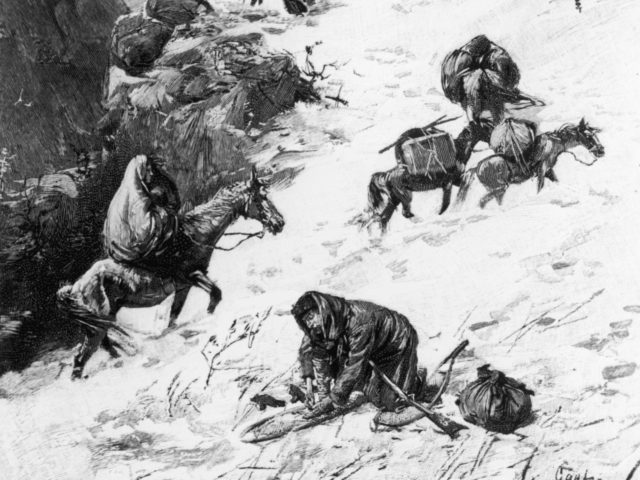Since cannibalism is found throughout the animal kingdom and therefore is something natural, perhaps it is time for humans to rethink the “ultimate taboo” against eating human flesh, Newsweek proposes in an article Wednesday.
There is nothing necessarily unethical or unreasonable about eating human flesh, declare psychologists Jared Piazza and Neil McLatchie of Lancaster University, but careful reasoning over the merits of cannibalism is often “overridden by our feelings of repulsion and disgust.”
While not going so far as to recommend cannibalism, saying “there is no need to overcome our repulsion for the foreseeable future,” the two authors suggest that humans could master their aversion for human flesh if they needed to.
“Many people develop disgust for all kinds of meat, while morticians and surgeons quickly adapt to the initially difficult experience of handling dead bodies,” they note. “Our ongoing research with butchers in England suggests that they easily adapt to working with animal parts that the average consumer finds quite disgusting.”
Moreover, the psychological revulsion experienced over the prospect of consuming human flesh is not the product of reason and may even contradict reason, they argue in Wednesday’s article, which originally appeared last week in The Conversation.
“Survivors of the famous 1972 Andes plane crash waited until near starvation before succumbing to reason and eating those who had already died,” they propose.
All sorts of animals eat members of their own species, from spadefoot tadpoles and Australian redback spiders to gulls and pelicans, they state.
And cannibalism can even be found among mammals, they add, such as with many rodents as well as bears, lions, and chimpanzees.
Yet humans seem entrenched in their conviction that anthropophagy is simply wrong, no matter how many conditions are placed on hypothetical scenarios.
Human revulsion toward cannibalism stems from our tendency to associate “personhood and flesh,” the authors propose, even when the flesh in question is no longer living.
Even if we can bring ourselves to deem cannibalism morally acceptable, they contend, “we can’t silence our thoughts about the person it came from” and so our “bias” against eating human flesh persists.
“The way we interact with animals shapes the way we categorize them. Research shows that the more we think of animals as having human properties—that is, as being ‘like us”’—the more we tend to think they’re gross to eat,” they note.
While noting in passing that “philosophers have argued that burying the dead could be wasteful in the context of the fight against world hunger,” the authors ultimately do not propose breaking this taboo “for now,” saying that “we’re as happy as you are to continue accepting the ‘wisdom of repugnance.’”

COMMENTS
Please let us know if you're having issues with commenting.